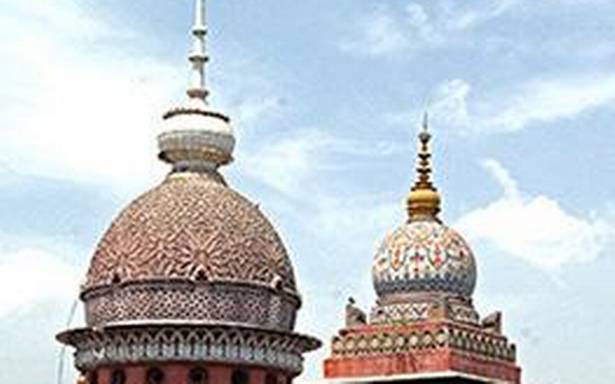No point in censuring parties for promises after results: plea
The Madras High Court on Tuesday directed the Election Commission of India (EC) to respond to a public interest litigation petition seeking a direction to it to fix a deadline for political parties to submit their manifestos for time-bound scrutiny.
The petition was to direct the EC to analyse if the manifestos conform to the code of conduct and if it reflects the rationale of the promises made, besides broadly indicating the ways and means to meet the financial requirements for fulfilling the promises. Chief Justice Sanjib Banerjee and Justice Senthilkumar Ramamoorthy granted time till March 15 for EC counsel Niranjan Rajagopalan to file a counter-affidavit to the petition filed by Coimbatore Common Cause, a private society, represented by its secretary K. Kathirmathiyon.
Petitioner’s counsel S. Sathia Chandran said the EC had so far not fixed a timeline for the submission of manifestos.
The society said the Constitution envisaged lofty ideals and great principles of democracy and the rule of law. However, the legislature, despite being the principal organ of the State, had been witnessing an irreversible deterioration and a falling of standards. This was because of political parties that gained a majority by hoodwinking the electorate by making false and empty promises with no rational basis.
To woo voters, political parties came up with promises without giving any thought to their feasibility, the petition added. Sky-high promises were included in election manifestos. “For instance, political parties make electoral promises such as the waiver of all farm loans, free distribution of household items, greenhouses, cash and gold for the poor for wedding purposes,” the affidavit read.
When a case opposing the distribution of freebies was taken to the Supreme Court, it had, in 2013, directed the EC to hold consultations with political parties on the issue of election manifestos and frame guidelines governing its contents. Such guidelines could also be made part of the model code of conduct that came in to force after the announcement of election dates, it added.
Accordingly, the EC had held discussions with the parties and inserted a provision in Part VIII of the model code of conduct, making it mandatory for parties to explain the rationale behind the promises made by them and to indicate how they would generate the finances required to fulfil those promises. It was also made mandatory for the parties to submit hard copies as well as soft copies of their manifestos to the Chief Electoral Officers (CEO) before the elections.
The CEOs were expected to forward the copies to the EC along with their comments. Pointing out that no time limit had been prescribed for carrying out this exercise, the petitioner said during the 2016 Assembly election, the Commission censured two major political parties in the State for not having explained the rationale behind the electoral promises made by them. But the action was taken only after the results were declared.
Therefore, it was necessary to carry out the exercise in a time-bound manner in the ensuing Assembly election and also in future elections, the petitioner’s counsel said.
Source: Read Full Article

